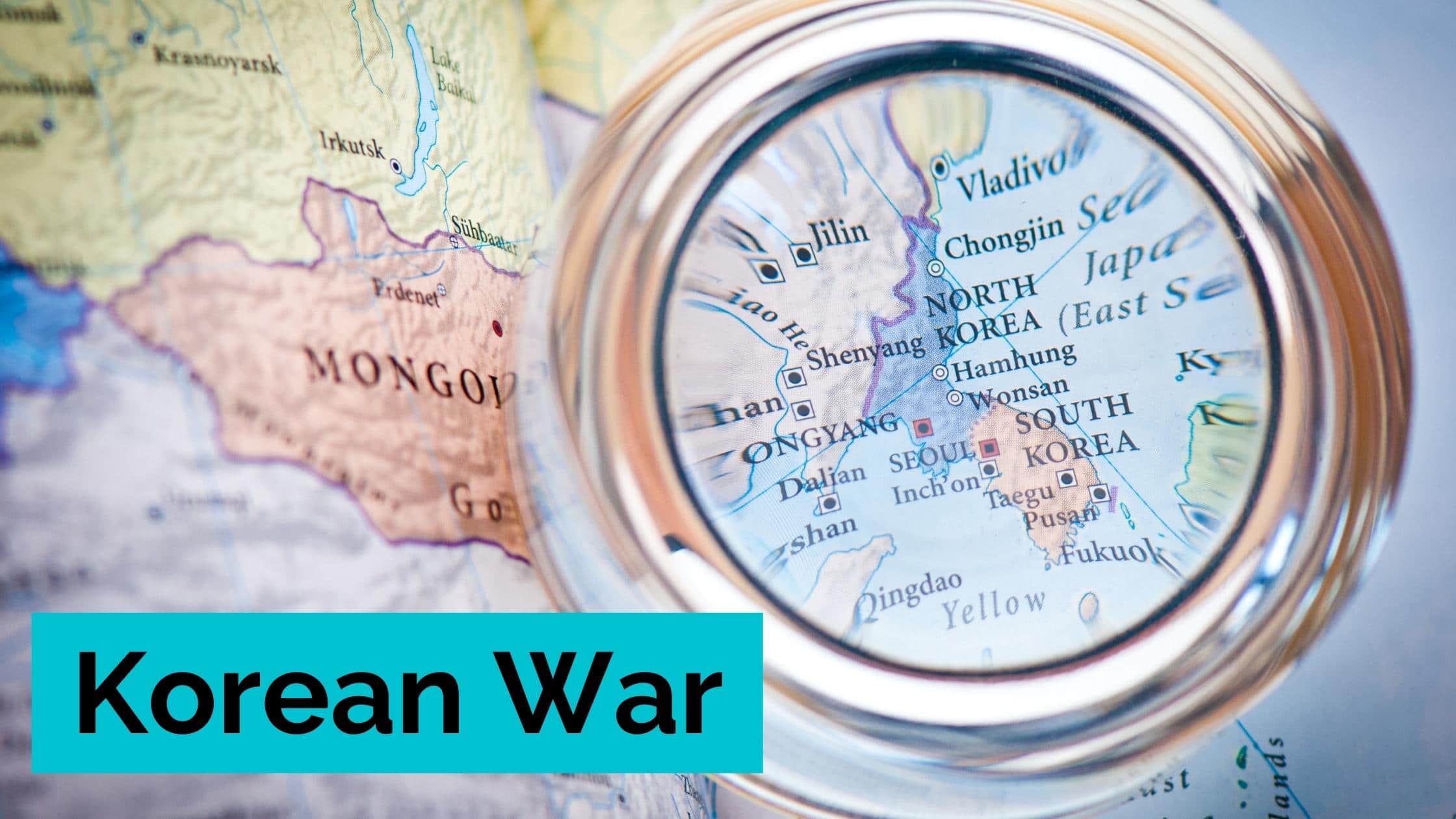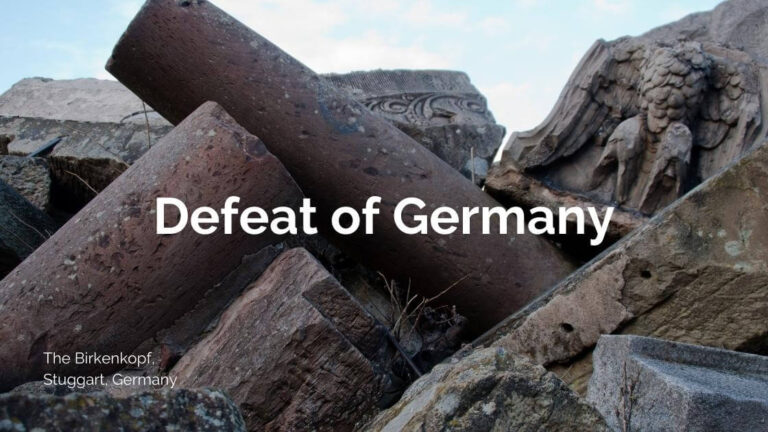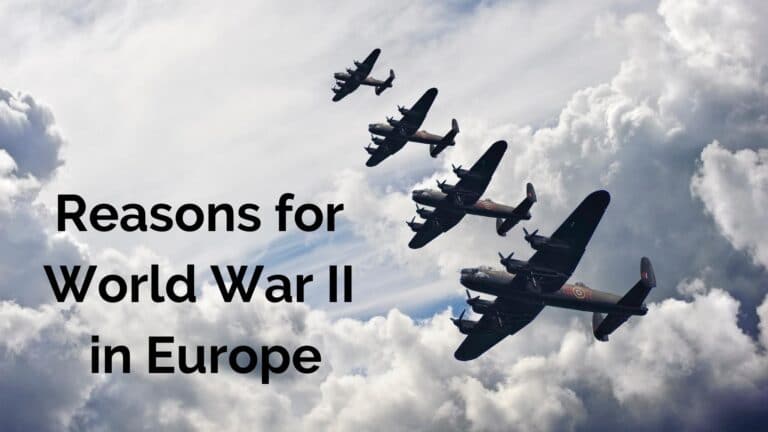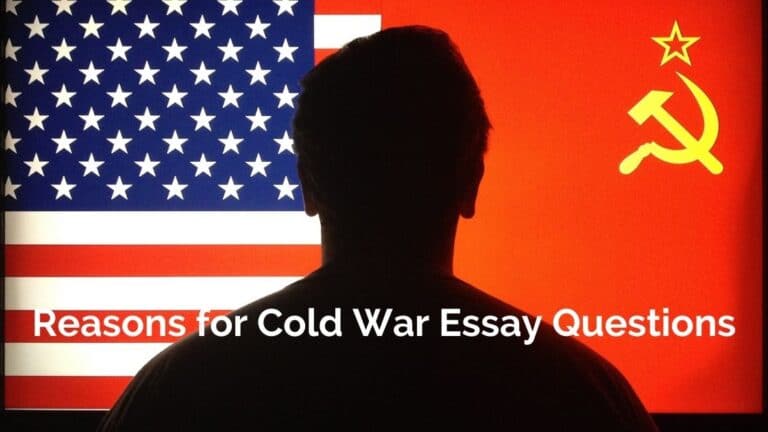Korean War: 4 SEQ Samples
The topic of the Korean War revolves around the reasons why it happened and whether it was a proxy war or just a civil war. These are just samples for students to refer to so that they have a model to use when answering a similar question.
For ease of download, I have included the pdf download in the box below.
1. Explain how post-war developments in Asia and Europe impacted Korea.
(P) Post-WWII development in Asia impacted Korea as it led to the necessity to contain the spread of communism in the Asia-Pacific.
(E) In October 1949, China turned communist, and China signed the Sino-Soviet Treaty of Friendship, Alliance and Mutual Assistance in February 1950 with the Soviet Union. The communists viewed Korea as a potential platform to expand their global influence into the Asia-Pacific. Hence, Mao, the leader of communist China, focused his attention on the assistance of North Korea, which served as a counter-balance to the American influence in Japan. As a result, the National Security Council prepared a top-secret report called the NSC-68, stressing the importance of the Americans to contain the spread of communism on a global basis.
(E) Thus, the communist take-over in China meant that Korea had become an essential platform over which both ideologies wanted to gain control to prevent the spread of communism.
(L) Thus, post-war development made Korea a battleground in the Cold War.
(P) Post-war development in Europe also significantly impacted Korea as the Soviets had gained greater leverage against Western powers.
(E) In August 1949, the Soviet Union had successfully exploded its first atomic bomb. This event created atomic parity with the USA, meaning that the USA could not use atomic diplomacy as an effective threat against the Soviet Union.
(E) Therefore, by early 1950, the Soviet Union was more inclined to support a possible North Korean invasion of the South. Kim Il-Sung approached Stalin for help in April 1950. Kim persuaded Stalin that he could easily and swiftly conquer the South. Stalin was concerned about the alliance of America and Japan and saw this as an opportunity to counter American influence in the region.
(L) Thus, encouraged by their attainment of atomic parity, Stalin granted Kim permission to attack the South.
2. “The Americans were responsible for the escalation of the Korean War.” How far do you agree with this statement? Explain your answer.
2. “The Americans were responsible for the escalation of the Korean War.” How far do you agree with this statement? Explain your answer.
(P) The escalation of the Korean War was a result of American involvement.
(E) The American intervention triggered China’s entry into the Korean War. By Oct 1950, UN troops had captured Pyongyang, occupied two-thirds of North Korea and reached the Yalu River. The presence of the UN troops was alarming to the Chinese, who felt threatened. Hence, when they ignored the repeated Chinese warnings, China joined the North Korean troops fighting the war.
(E) Instead of being a civil war between North and South Koreas, it escalated into a more significant regional conflict – involving the USA and its allies on one side and North Korea and China and the USSR.
(L) Therefore, US involvement had worsened the conflict.
(P) However, the Americans were not to be blamed for the escalation of the Korean War.
(E) This escalation was caused by both the Soviet Union and China. The Soviet Union and China supported Kim Il Sung’s government in North Korea. They sought to extend the communist sphere of influence. The Soviet Union also supplied the North with the weaponry that would help it to invade the South. Even though Stalin did not actively encourage Kim to invade the South, he eventually approved and asked China to help Kim. Kim Il Sung also did not take any direct action against South Korea until he had attained Stalin’s approval and support.
(E) Therefore, the indirect involvement of the Soviet Union gave Kim the confidence to carry out the invasion, which led to the Korean War and escalated into a proxy war that saw Chinese troops and Soviet-trained troops in the war.
(L) Thus, the Soviet Union and China were responsible for the Korean War.
(J) In conclusion, the USA had its motivations for becoming involved in Korea as part of the Cold War against the Soviet Union. Hence, the USA is responsible for escalating the Korean War. The USA saw the North Korean invasion of South Korea as part of a Soviet plan to gain hegemony in Asia and eventually control the world. As a result, they led to a significant force to counter the North Korean advance, which also led to the involvement of Chinese troops and thus escalating the Korean War.

3. “South Korea was to be blamed for the Korean War.” How far do you agree with this statement? Explain your answer.
(P) I agree that South Korea was to be blamed for the Korean War.
(E) Border clashes between North Korea and South Korea were standard in 1949 and 1950. South Korea started these clashes to try to capture territory in North Korea. However, Syngman Rhee’s aggressive actions in planning border clashes backfired as they failed to achieve their goals. These failed invasions set the stage for North Korea’s invasion of the South in June 1950, which started the Korean War as they convinced North Korea of the ineffectiveness of the South Korean forces.
(E) For example, South Korean warships on North Korean military installations provoked the North Korean army and resulted in fierce fighting by both sides. It also affected the USA’s goodwill towards South Korea and made the USA even more reluctant to send heavy weapons to South Korea. As a result, these border clashes revealed the weaknesses of the South Korean forces and their inability to launch successful offensive attacks. Desertions by South Korean soldiers were common and showed the unpopularity of Rhee’s regime.
(L) Hence, South Korea was to be blamed for the Korean War.
(P) However, I’m afraid I disagree with the statement because the Soviet Union was also blamed for the Korean War.
(E) The Soviet Union supported North Korea’s invasion of South Korea. In early 1950, Stalin changed his mind and became more willing to help Kim’s invasion after developments like the communist victory in China, the Soviet explosion of the atomic bomb and the US Defensive Perimeter. Hence, the Soviet Union trained the North Korean army and provided military equipment such as tanks, guns and fighter planes. As a result, Soviet support for Kim’s invasion of South Korea led to the outbreak of the Korean War.
(E) It helped make the North Korean army strong and gave them the military capability to launch an offensive attack on South Korea. It also gave Kim the confidence to invade South Korea because he could count on Stalin and Mao to help him should the invasion go wrong. Indeed, the North Korean forces launched a surprise attack on South Korea on 25 June 1950 and started the Korean War.
(L) Hence, USSR was to be blamed for the Korean War.
(J) In conclusion, I partly disagree that South Korea was responsible for the Korean War. South Korea incited frequent border clashes, which increased tensions between the two sides and made the conflict inevitable. Within this setting of increasing provocation by the South, the Soviet Union could offer its support to North Korea to mount the offensive and invade South Korea, which then triggered the outbreak of the Korean War.
At the same time, Soviet Union’s financial, military, technical and logistical support for North Korea did help to make the North Korean army strong. It gave them the military capability and the confidence to launch a successful offensive attack and invasion of South Korea. Hence, both sides are responsible for the Korean War
4. “The Korean War was mainly about the reunification of the two Koreas.” How far do you agree with this statement? Explain your answer.
(P) The Korean War was mainly because of the desire by both sides for unification.
(E) The Korean peninsula was halved at the 38th parallel after Japan had surrendered and Japanese soldiers left Korea. The USSR occupied the northern part temporarily and the USA the southern region. The United Nations called for an election in 1947 to establish a single government to reunite Korea, but the USSR refused to hold it. As a result, Korea splintered into two halves in 1949. Both Syngman Rhee (President of South Korea) and Kim Il Sung (President of North Korea) claimed the right to rule over Korea. As a result, there were border raids and conflicts between small groups of soldiers from the North and South.
(E) Syngman kept provoking the North Koreans by launching raids into North Kore but failed. On the other hand, Kim was also determined to unite the Korean peninsula under communism. With the blessings of the USSR, the North Korean army invaded South Korea.
(L) Thus, a civil war broke out with Koreans fighting against each other because both sides desired unification.
(P) However, the Korean War was primarily due to interference by external powers.
(E) The USSR was to be blamed for the Korean War. From the start, Stalin had backed Kim Il-Sung to run a communist government in Korea due to Stalin’s attempt to keep North Korea communist and spread communism across Asia. The USSR supplied North Korea with military equipment and training. As the leader of the communist bloc, it also encouraged China to back North Korea directly, which led to Kim daring to invade South Korea in 1950.
(E) The USSR was thus to blame because it used Korea as the ground for a proxy war to demonstrate its superiority over its superpower rival – the United States.
(L) Thus, the Korean War was because of external powers.
(P) The US was also responsible for the outbreak of the Korean War.
(E) During the Cold War, the US was determined not to let Korea fall into the hands of communism. When World War II ended, the US set up a democratic government in Korea. They even supported Syngman Rhee – a leader who abused his authority in South Korea.
(E) As a result, when North Korean soldiers invaded South Korea, the US was determined to protect South Korea, activated a UN coalition force under its leadership, and intervened in the conflict, turning a civil war into an international problem.
(L) Thus, the Korean War was a result of American intervention.
(J) In conclusion, the Korean war was fundamentally a conflict between the two Koreas, as armed contact between the two Koreas had already occurred before the intervention of the US and the Soviet Union. The presence of the support of the superpowers merely sought to escalate the conflict to a new level given the increase in terms of military aid, resulting in North Korea’s crossing of the 38th Parallel in June 1950.
Conclusion
This is part of the History Structured Essay Question series. For more information on the Korean War, you can click here. For more information about the O level History Syllabus, you can click here. You can download the pdf version below.
Other chapters are found here:
- Treaty of Versailles
- League of Nations
- Rise of Stalin
- Stalin’s Rule
- Rise of Hitler
- Hitler’s Rule
- Reasons for World War II in Europe
- Reasons for the Defeat of Germany
- Reasons for World War II in Asia-Pacific
- Reasons for the Defeat of Japan
- Reasons for the Cold War
- Korean War
- Cuban Missile Crisis
- Reasons for the End of the Cold War

Critical Thought English & Humanities is your best resource for English, English Literature, Social Studies, Geography and History.
My experience, proven methodology and unique blend of technology will help your child ace their exams.
If you have any questions, please contact us!







